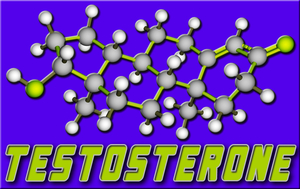Introduction to Growth Hormone Deficiency in Cancer Survivors
Survivors of childhood cancer often face a myriad of long-term health challenges, one of which includes growth hormone deficiency (GHD). This condition can significantly impact their physical development and overall quality of life. Fortunately, medical science has made strides in addressing this issue, with Omnitrope emerging as a pivotal treatment option.
Understanding Omnitrope
Omnitrope is a recombinant human growth hormone (rhGH) that has been approved by the FDA for the treatment of growth failure in children and adolescents due to inadequate secretion of endogenous growth hormone. As a biosimilar to the original growth hormone product, Omnitrope offers a cost-effective alternative without compromising on efficacy or safety.
The Impact of Childhood Cancer on Growth
Childhood cancer treatments, such as radiation and chemotherapy, can damage the pituitary gland, which is responsible for producing growth hormone. This damage can lead to GHD, resulting in stunted growth and delayed puberty. For American males who have battled cancer during their formative years, the journey to adulthood can be fraught with concerns about their stature and physical development.
Omnitrope's Role in Treatment
Omnitrope plays a crucial role in the management of GHD in childhood cancer survivors. Administered via daily subcutaneous injections, this therapy helps to mimic the body's natural growth hormone production. Studies have shown that Omnitrope can significantly improve growth rates in children with GHD, offering hope to those who might otherwise face a lifetime of being shorter than their peers.
Clinical Evidence Supporting Omnitrope
Clinical trials have provided robust evidence supporting the use of Omnitrope in this population. For instance, a study published in the Journal of Clinical Endocrinology & Metabolism demonstrated that children treated with Omnitrope experienced an average increase in height of 8 cm over three years, compared to untreated controls. These findings underscore the potential of Omnitrope to make a meaningful difference in the lives of young cancer survivors.
Safety Profile of Omnitrope
Safety is a paramount concern for any medical treatment, especially in a population that has already endured significant health challenges. Omnitrope has been found to have a favorable safety profile, with side effects typically being mild and transient. Common side effects may include injection site reactions, headaches, and fluid retention, but these are generally well-tolerated and manageable.
Long-Term Benefits and Considerations
Beyond immediate growth improvements, the long-term benefits of Omnitrope treatment are also noteworthy. Enhanced growth can lead to improved self-esteem and psychological well-being, which are critical for young males navigating the complexities of adolescence and young adulthood. However, it is essential for patients and their families to work closely with healthcare providers to monitor treatment progress and adjust dosages as necessary.
Navigating Treatment Challenges
While Omnitrope offers a promising solution, there are challenges to consider. Adherence to a daily injection regimen can be daunting for young patients and their families. Additionally, the cost of treatment, although mitigated by Omnitrope's biosimilar status, can still pose a financial burden. Support from healthcare providers, patient advocacy groups, and insurance coverage can play a vital role in overcoming these hurdles.
Conclusion: A Beacon of Hope for Childhood Cancer Survivors
Omnitrope represents a beacon of hope for American males who have survived childhood cancer and are facing the challenges of GHD. By facilitating improved growth and development, this treatment can help these young survivors lead healthier, more fulfilling lives. As research continues to evolve, the medical community remains committed to optimizing the use of Omnitrope and exploring new avenues to support the long-term health of childhood cancer survivors.
Contact Us Today For A Free Consultation

- Omnitrope: Uses, Contraindications, and Precautions for American Males [Last Updated On: February 22nd, 2025] [Originally Added On: February 22nd, 2025]
- Unveiling the Cardiovascular Benefits of Omnitrope in Growth Hormone Deficient American Males [Last Updated On: February 28th, 2025] [Originally Added On: February 28th, 2025]
- Unveiling the Impact of Omnitrope on Cognitive Development in Pediatric Patients [Last Updated On: March 6th, 2025] [Originally Added On: March 6th, 2025]
- Unveiling the Medical Odyssey of Omnitrope: From Synthesis to Treatment [Last Updated On: March 15th, 2025] [Originally Added On: March 15th, 2025]
- Unveiling the Potential of Omnitrope in Treating Pediatric Growth Disorders [Last Updated On: March 16th, 2025] [Originally Added On: March 16th, 2025]
- Unlocking Growth Potential: The Role of Omnitrope in Managing Inflammatory Bowel Disease in Children [Last Updated On: March 16th, 2025] [Originally Added On: March 16th, 2025]
- Unveiling the Therapeutic Potential of Omnitrope in Managing Noonan Syndrome [Last Updated On: March 16th, 2025] [Originally Added On: March 16th, 2025]
- Unveiling the Dermatological Benefits of Omnitrope in Growth Hormone Deficient American Males [Last Updated On: March 16th, 2025] [Originally Added On: March 16th, 2025]
- Unveiling the Therapeutic Potential of Omnitrope in Managing Growth Hormone Deficiency Among American Males with Epilepsy [Last Updated On: March 16th, 2025] [Originally Added On: March 16th, 2025]
- Omnitrope Enhances Growth in American Males with Noonan Syndrome: Clinical Insights [Last Updated On: March 16th, 2025] [Originally Added On: March 16th, 2025]
- Omnitrope: Enhancing Growth in SGA American Male Infants - Efficacy and Safety [Last Updated On: March 18th, 2025] [Originally Added On: March 18th, 2025]
- Omnitrope's Impact on Insulin Sensitivity in American Males with Growth Hormone Deficiency [Last Updated On: March 18th, 2025] [Originally Added On: March 18th, 2025]
- Omnitrope Therapy's Impact on Bone Age in American Male Children: Efficacy and Considerations [Last Updated On: March 19th, 2025] [Originally Added On: March 19th, 2025]
- Omnitrope Therapy: Enhancing Muscle Strength in American Adult Males [Last Updated On: March 20th, 2025] [Originally Added On: March 20th, 2025]
- Omnitrope: Enhancing Growth in Pediatric Endocrinology with FDA-Approved Biosimilar [Last Updated On: March 20th, 2025] [Originally Added On: March 20th, 2025]
- Omnitrope's Impact on Lipid Profiles in American Males with Growth Hormone Deficiency [Last Updated On: March 21st, 2025] [Originally Added On: March 21st, 2025]
- Omnitrope: Enhancing Growth and Final Height in American Boys with GHD [Last Updated On: March 21st, 2025] [Originally Added On: March 21st, 2025]
- Omnitrope: Enhancing Growth in American Boys with Genetic Disorders [Last Updated On: March 21st, 2025] [Originally Added On: March 21st, 2025]
- Omnitrope: Enhancing Growth and Life Quality in Males with Idiopathic Short Stature [Last Updated On: March 21st, 2025] [Originally Added On: March 21st, 2025]
- Omnitrope Therapy Enhances Sleep Quality in American Males with Growth Hormone Deficiency [Last Updated On: March 21st, 2025] [Originally Added On: March 21st, 2025]
- Omnitrope for Growth Hormone Deficiency in American Adolescent Males: Uses and Considerations [Last Updated On: March 21st, 2025] [Originally Added On: March 21st, 2025]
- Omnitrope's Impact on Psychological Well-being in American Men with GHD [Last Updated On: March 22nd, 2025] [Originally Added On: March 22nd, 2025]
- Omnitrope Enhances Life Quality in American Males with Short Bowel Syndrome [Last Updated On: March 22nd, 2025] [Originally Added On: March 22nd, 2025]
- Omnitrope: Treating Growth Hormone Deficiency in American Males with Hypopituitarism [Last Updated On: March 22nd, 2025] [Originally Added On: March 22nd, 2025]
- Omnitrope: Enhancing Life Quality in Male Cancer Survivors with Growth Hormone Deficiency [Last Updated On: March 22nd, 2025] [Originally Added On: March 22nd, 2025]
- Omnitrope Therapy Enhances Growth in Children with Cystic Fibrosis: A Comprehensive Overview [Last Updated On: March 23rd, 2025] [Originally Added On: March 23rd, 2025]
- Omnitrope: Treating Growth Hormone Deficiency in Autoimmune Diseases for American Males [Last Updated On: March 23rd, 2025] [Originally Added On: March 23rd, 2025]
- Omnitrope's Role in Regenerative Medicine for American Males: Growth and Healing Potential [Last Updated On: March 23rd, 2025] [Originally Added On: March 23rd, 2025]
- Omnitrope Therapy: Effects on Renal Function in Pediatric Patients [Last Updated On: March 23rd, 2025] [Originally Added On: March 23rd, 2025]
- Omnitrope: Treating Growth Hormone Deficiency in American Males with Epilepsy [Last Updated On: March 23rd, 2025] [Originally Added On: March 23rd, 2025]
- Omnitrope: Enhancing Life for HIV-Positive American Males with Growth Hormone Deficiency [Last Updated On: March 23rd, 2025] [Originally Added On: March 23rd, 2025]
- Omnitrope: Treating Growth Hormone Deficiency in Obese American Males [Last Updated On: March 23rd, 2025] [Originally Added On: March 23rd, 2025]
- Omnitrope: Advancing GHD Treatment in Diabetic American Males [Last Updated On: March 23rd, 2025] [Originally Added On: March 23rd, 2025]
- Omnitrope's Efficacy in Treating Growth Issues in Pediatric IBD Patients [Last Updated On: March 24th, 2025] [Originally Added On: March 24th, 2025]
- Omnitrope: A Promising Treatment for Growth Hormone Deficiency in American Men [Last Updated On: March 24th, 2025] [Originally Added On: March 24th, 2025]
- Omnitrope: Treating Growth Hormone Deficiency in American Males with Rheumatoid Arthritis [Last Updated On: March 24th, 2025] [Originally Added On: March 24th, 2025]
- Omnitrope Enhances Immune Function in American Males with Growth Hormone Deficiency [Last Updated On: March 24th, 2025] [Originally Added On: March 24th, 2025]
- Omnitrope Therapy Enhances Skin Health in Pediatric American Males [Last Updated On: March 25th, 2025] [Originally Added On: March 25th, 2025]
- Omnitrope: Treating Growth Failure in Children with Chronic Illnesses [Last Updated On: March 25th, 2025] [Originally Added On: March 25th, 2025]
- Omnitrope: Advancing Treatment for GHD in American Males with Hemophilia [Last Updated On: March 25th, 2025] [Originally Added On: March 25th, 2025]
- Omnitrope's Impact on Hematological Parameters in American Males with GHD [Last Updated On: March 25th, 2025] [Originally Added On: March 25th, 2025]
- Omnitrope: A Promising Treatment for Osteoporosis in Men with Growth Hormone Deficiency [Last Updated On: March 26th, 2025] [Originally Added On: March 26th, 2025]
- Omnitrope's Efficacy in Enhancing Growth in IUGR-Affected American Male Children [Last Updated On: March 26th, 2025] [Originally Added On: March 26th, 2025]
- Omnitrope Therapy's Impact on Gastrointestinal Health in American Male Children [Last Updated On: March 26th, 2025] [Originally Added On: March 26th, 2025]
- Omnitrope: Treating Growth Hormone Deficiency in Males with PCOS [Last Updated On: March 26th, 2025] [Originally Added On: March 26th, 2025]
- Omnitrope: Treating Growth Hormone Deficiency and Chronic Fatigue in American Males [Last Updated On: March 26th, 2025] [Originally Added On: March 26th, 2025]
- Omnitrope's Impact on Neurological Function in American Males with GHD [Last Updated On: March 26th, 2025] [Originally Added On: March 26th, 2025]
- Omnitrope's Impact on Liver Function in American Men with Growth Hormone Deficiency [Last Updated On: March 26th, 2025] [Originally Added On: March 26th, 2025]
- Omnitrope: Enhancing Growth and Quality of Life in Males with Down Syndrome [Last Updated On: March 27th, 2025] [Originally Added On: March 27th, 2025]
- Omnitrope: Managing GHD in American Males with Asthma [Last Updated On: March 27th, 2025] [Originally Added On: March 27th, 2025]
- Omnitrope's Impact on Growth and Development in Children with Autism Spectrum Disorders [Last Updated On: March 27th, 2025] [Originally Added On: March 27th, 2025]
- Omnitrope: Enhancing Growth and Metabolic Health in GHD and Thyroid Disorders [Last Updated On: March 27th, 2025] [Originally Added On: March 27th, 2025]
- Omnitrope Enhances Respiratory Function in American Men with Growth Hormone Deficiency [Last Updated On: March 27th, 2025] [Originally Added On: March 27th, 2025]
- Omnitrope Therapy's Impact on Dental Health in Children: A Comprehensive Overview [Last Updated On: March 28th, 2025] [Originally Added On: March 28th, 2025]
- Omnitrope: Enhancing Reproductive Health in Men with Growth Hormone Deficiency [Last Updated On: March 28th, 2025] [Originally Added On: March 28th, 2025]
- Omnitrope: Enhancing Growth in Children with Congenital Heart Disease [Last Updated On: March 28th, 2025] [Originally Added On: March 28th, 2025]
- Omnitrope: Enhancing Growth in Sickle Cell Disease and Hormone Deficiency [Last Updated On: March 28th, 2025] [Originally Added On: March 28th, 2025]
- Omnitrope's Impact on Growth Hormone Deficiency in American Males with MS [Last Updated On: March 28th, 2025] [Originally Added On: March 28th, 2025]
- Omnitrope Therapy Enhances Eye Health in Growth Hormone Deficient Children [Last Updated On: March 28th, 2025] [Originally Added On: March 28th, 2025]
- Omnitrope Therapy's Impact on Auditory Health in Pediatric Patients: Insights for American Males [Last Updated On: March 30th, 2025] [Originally Added On: March 30th, 2025]
- Omnitrope: Enhancing Life for American Males with Growth Hormone Deficiency [Last Updated On: April 3rd, 2025] [Originally Added On: April 3rd, 2025]
- Omnitrope: Enhancing Life for American Males with GHD and Chronic Pain [Last Updated On: April 4th, 2025] [Originally Added On: April 4th, 2025]
- Omnitrope: Enhancing Life Quality in American Males with GHD and Fibromyalgia [Last Updated On: April 4th, 2025] [Originally Added On: April 4th, 2025]
- Omnitrope Therapy: Enhancing Growth and Musculoskeletal Health in American Boys [Last Updated On: April 5th, 2025] [Originally Added On: April 5th, 2025]
- Omnitrope Enhances Skin Health in American Men with Growth Hormone Deficiency [Last Updated On: April 6th, 2025] [Originally Added On: April 6th, 2025]
- Omnitrope's Impact on GHD and Psoriasis in American Males: Efficacy and Considerations [Last Updated On: April 6th, 2025] [Originally Added On: April 6th, 2025]
- Omnitrope's Role in Managing GHD in American Males with Eczema: Efficacy and Safety [Last Updated On: April 7th, 2025] [Originally Added On: April 7th, 2025]
- Omnitrope's Efficacy in Treating Growth Delays from Allergic Rhinitis in American Boys [Last Updated On: April 9th, 2025] [Originally Added On: April 9th, 2025]
- Omnitrope Therapy: Effects on Growth and Urological Health in Children [Last Updated On: April 10th, 2025] [Originally Added On: April 10th, 2025]
- Omnitrope's Psychiatric Impacts on American Males with Growth Hormone Deficiency [Last Updated On: April 10th, 2025] [Originally Added On: April 10th, 2025]
- Omnitrope Therapy: Enhancing Nutritional Health in American Male Children with GHD [Last Updated On: April 10th, 2025] [Originally Added On: April 10th, 2025]
- Omnitrope's Role in Treating GHD in American Males with Schizophrenia: Efficacy and Care [Last Updated On: April 11th, 2025] [Originally Added On: April 11th, 2025]
- Omnitrope's Impact on Geriatric Health in American Males: Enhancing Life Quality [Last Updated On: April 11th, 2025] [Originally Added On: April 11th, 2025]
- Omnitrope Therapy Enhances Bone Health in Aging American Males: A Comprehensive Overview [Last Updated On: April 12th, 2025] [Originally Added On: April 12th, 2025]
- Omnitrope's Role in Treating Growth Hormone Deficiency in American Males with Anorexia [Last Updated On: April 12th, 2025] [Originally Added On: April 12th, 2025]
- Omnitrope's Role in Treating GHD in American Males with Alzheimer's [Last Updated On: April 15th, 2025] [Originally Added On: April 15th, 2025]
- Omnitrope Enhances Recovery in American Males with Post-Surgical Growth Hormone Deficiency [Last Updated On: April 17th, 2025] [Originally Added On: April 17th, 2025]
- Omnitrope: A Promising Therapy for Growth Hormone Deficiency in Parkinson's Disease [Last Updated On: April 17th, 2025] [Originally Added On: April 17th, 2025]
- Omnitrope: Enhancing Life for American Males with TBI-Induced GHD [Last Updated On: April 18th, 2025] [Originally Added On: April 18th, 2025]
- Omnitrope Therapy: Enhancing Surgical Recovery in American Male Children [Last Updated On: April 18th, 2025] [Originally Added On: April 18th, 2025]
Word Count: 582


















